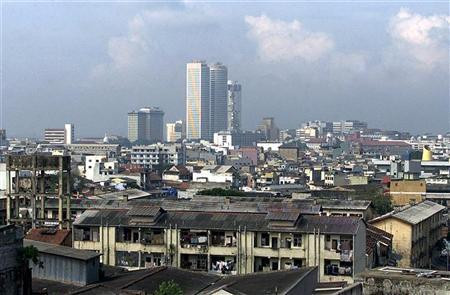Sri Lanka: Sirisena's growth investment policies not clear yet; crucial for credit outlook, Moody's says

There is no clarity yet as to how Sirisena, the new president of Sri Lanka, would take forward growth and investment policies, and the new policies are going to determine the credit outlook of the country, Moody's Investors Service said on Tuesday.
The outlook will improve if the new government continues to promote growth, while successfully paring down government debt, the rating agency said.
"The extent to which he will maintain or reverse current fiscal and investment policies is not apparent from his election manifesto, which focused primarily on governance and social issues, such as corruption, decentralization of political power and religious/ethnic cohesion," Moody's said.
With the government now spending 40% of its revenues to pay interests, lowering debt should be a high priority for the new government, Moody's noted.
Maithripala Sirisena has replaced Mahinda Rajapaksa as the president of the island nation in a snap election that concluded last Friday.
Moody's said the first change in president since the end of the civil war in 2009 builds on Sri Lanka's democratic process and added that it is waiting for the fiscal and investment policies of Sirisena.
"We expect statements accompanying the appointment of the cabinet and a new central bank governor to offer clarity on the administration's economic priorities over the next few days."
Moody's said the upcoming parliament elections in April will be crucial as its outcome will determine Sirisena's support for the passage of legislation required for implementing his policy agenda.
"Sri Lanka's new president inherits a fast-growing economy, but one with a large government debt burden. Post-war investment projects and reconstruction in the north and east provinces have helped sustain growth at 7.5% between 2010-2013," the rating agency noted.
Sri Lanka managed to reduce the fiscal deficit to 5% of GDP in 2014 from 9.9% in 2009, and lowered government debt to 78.3% in 2013 from 86.1% of GDP in 2009.
Debt still remains significantly above the median of 41% for sovereigns of similar rating, Moody's said, adding that the high proportion of foreign currency loans worsens the scenario.
"About 43% of the government's debt is denominated in foreign currencies, leaving the government's financing profile vulnerable to volatility in the exchange rate and international credit markets,"
Sri Lanka's post election credit outlook will depend on whether policies will continue to promote growth while successfully paring down government debt, Moody's stated.
During the election campaign, Sirisena had said that he would reassess large projects initiated by the previous administration and ensure that the Sri Lankan economy did not rely on a single country for investment.
How this translates into regulatory and foreign policy, particularly towards China, which has become the largest overseas investor in Sri Lanka, could determine the pipeline for investments, a vital driver of Sri Lanka's post-war growth, Moody's said.
© Copyright IBTimes 2025. All rights reserved.






















